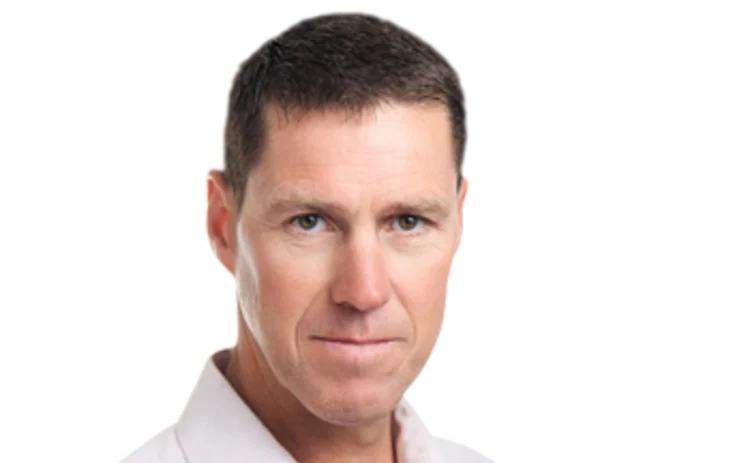October 2017: The Consequence of Connections

Connections, it seems, pretty much trump everything else, both in life in general and across the capital markets. It’s only when humans feel isolated due to a lack of connectivity—which in extreme cases can manifest in a variety of dissociation disorders where subjects crave connections to things (like reality) and other people, but for one reason or another cannot establish them—that the importance of making and maintaining connections really hits home.
Connections give rise to the establishment of communities, the viability of which are determined largely by the level of buy-in from their members, and in that sense, our industry is no different from any other. Technology, while critical to the normal functioning of most capital markets communities, is largely inconsequential to their members in terms of exactly how it works, as long as it does what it’s supposed to. It’s a bit like the engines on a passenger airliner. Are they important to the general well-being of the passengers? Yes. But do passengers care whether they are made by Rolls Royce, Pratt & Whitney or General Electric? Are they interested in their fan blade design and how much thrust each engine produces during climb out? Of course not. Those issues are inconsequential, as long as the engines do what they are supposed to and the aircraft gets them to their destination safely.
I recently had the opportunity to reconnect with Lee Olesky, co-founder and CEO of Tradeweb, after about 15 years of no contact. We first met in 2001 or 2002 when he was based in the UK, but that was it in terms of contact, until a week ago when we got together in Infopro Digital’s studio in London to look back at the seminal moments over the past two decades that the fixed-income trading platform has been in existence as a kind of celebration of the firm’s 20th birthday. One of the striking features of that conversation is the value Tradeweb places on what Olesky refers to as its “network.” According to Olesky, the premise upon which the business was founded and which has served it so well over the years is simple: It brings together buyers and sellers of similar products in a safe, ordered and transparent environment so that they can transact their business.
In that sense, it’s not unlike Amazon, he says, except it caters to the global fixed-income trading community. The crucial element of the firm’s business model is not its underlying technology, but the community that thrives as a result of it. Sure, the technology pulls everyone together, irrespective of their location, language and time zone, but it is the community and their buy-in that breathes life into the platform and renders it viable. So, as much as our industry is driven by technology, it’s even more so driven by communities using that technology to go about their business. And that, to my mind, will never change.
Only users who have a paid subscription or are part of a corporate subscription are able to print or copy content.
To access these options, along with all other subscription benefits, please contact info@waterstechnology.com or view our subscription options here: https://subscriptions.waterstechnology.com/subscribe
You are currently unable to print this content. Please contact info@waterstechnology.com to find out more.
You are currently unable to copy this content. Please contact info@waterstechnology.com to find out more.
Copyright Infopro Digital Limited. All rights reserved.
As outlined in our terms and conditions, https://www.infopro-digital.com/terms-and-conditions/subscriptions/ (point 2.4), printing is limited to a single copy.
If you would like to purchase additional rights please email info@waterstechnology.com
Copyright Infopro Digital Limited. All rights reserved.
You may share this content using our article tools. As outlined in our terms and conditions, https://www.infopro-digital.com/terms-and-conditions/subscriptions/ (clause 2.4), an Authorised User may only make one copy of the materials for their own personal use. You must also comply with the restrictions in clause 2.5.
If you would like to purchase additional rights please email info@waterstechnology.com
More on Emerging Technologies
Editor’s Picks: Our best from 2025
Anthony Malakian picks out 10 stories from the past 12 months that set the stage for the new year.
The next phase of AI in capital markets: from generative to agentic
A look at some of the more interesting projects involving advanced forms of AI from the past year.
Market data costs defy cyclicality
Trading firms continue to grapple with escalating market data costs. Can innovative solutions and strategic approaches bring relief?
As trading firms embrace AI, so do hackers
According to a Google cybersecurity report, cybercriminals are turning to AI to sharpen their attacks.
AI & data enablement: A looming reality or pipe dream?
Waters Wrap: The promise of AI and agents is massive, and real-world success stories are trickling out. But Anthony notes that firms still need to be hyper-focused on getting the data foundation correct before adding layers.
Waters Wavelength Ep. 343: Broadridge’s Jason Birmingham
This week, Jason Birmingham of Broadridge talks with Tony about the importance of fundamentals as technology rapidly evolves.
Data standardization is the ‘trust accelerator’ for broader AI adoption
In this guest column, data product managers at Fitch Solutions explain AI’s impact on credit and investment risk management.
BNY inks AI deal with Google, Broadridge moves proxy voting to AWS, Expero delivers ICE market data, and more
The Waters Cooler: TSX Venture Exchange data hits the blockchain, SmartTrade acquires Kace, and garage doors link to cloud costs in this week’s news roundup.








